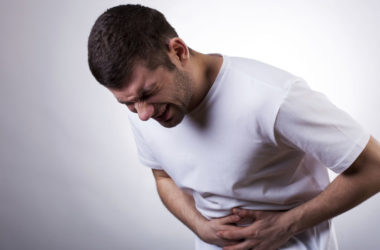Because pregnancy affects your immune system, you and your unborn baby are more susceptible to the bacteria, viruses, and parasites that cause foodborne illness. Even if you don’t feel sick, some “bugs” like Listeria and Toxoplasma can infect your baby and cause serious health problems. Your baby is also sensitive to toxins from the food that you eat, such as mercury.
You want what’s best for your baby. That’s why you add sliced fruit to your fortified breakfast cereal, top your salads with chickpeas and snack on almonds. But do you know what foods to avoid during pregnancy?
Start with the basics in pregnancy nutrition. Understanding what foods to avoid during pregnancy can help you make the healthiest choices for you and your baby.
There are some foods that you’ll have to steer clear of during pregnancy, because they could be unsafe for your baby:
- Cheese – with a white, mouldy rind, such as brie, goat, feta, queso blanco and camembert, and blue-veined cheeses such as roquefort. Why? They may be unpasteurized and contaminated with listeria — bacteria that can trigger food poisoning. These soft cheeses have a high fear factor because they’re not aged, like cheddar or Parmesan, where the process kills bacteria naturally, says Hope Ricciotti, MD, associate professor of obstetrics and gynecology at Harvard Medical School and coauthor of I’m Pregnant! Now What Do I Eat?And because pregnant women have a weakened immune system, they are more prone to certain food-borne illnesses — which, if contracted in the first trimester, can lead to miscarriage or preterm birth.
- Eggs, Meat – All are possible sources of bacteria that can harm your unborn baby. When cooking meat and eggs, make sure they are cooked properly. No one is going to tell you to avoid eggs, which are a high-quality source of protein and contain important nutrients like choline. But eggs do have some risk of being contaminated with salmonella, which is more dangerous for pregnant women than for the general population. So be sure to practice good egg safety, says Swinney: Only buy refrigerated eggs, and toss any with cracked or unclean shells. Avoid eating runny eggs or those soft-boiled (go for scrambled instead of sunny-side up), Caesar salad dressing (if it contains raw egg), unpasteurized eggnog, and homemade ice cream. And don’t taste-test that raw cake or cookie batter. Buying cold cuts at the deli for this week’s lunches? Be careful; deli products might become contaminated with listeria if they’re not handled properly at the manufacturing plant or at the deli itself. As a precaution, heat store-sliced deli meats until they’re steaming-hot to kill the bacteria. And when preparing pork, beef, or lamb at home, cook it to medium or medium-well, says Dr. Ricciotti. These meats may be infected with toxoplasma, a parasite that causes an infection that, although relatively rare, can cause stillbirth or serious health problems.
- Pate – do not eat liver and liver products because they may contain large amounts of the retinol form of vitamin A. Too much of this could be harmful to your developing baby.
- Seafood – Raw seafood, such as oysters, or sushi that has not been frozen before making are not safe for you. Seafoods like shark, swordfish,king mackerel, tilefish or marlin contain unsafe levels of naturally occurring mercury. Tuna contains some mercury too, so it’s best you don’t eat more than four medium-sized cans, or two fresh tuna steaks per week.
- Alcohol – You should stop or cut down on drinking alcohol during pregnancy, too. The effects of alcohol can include:
- Distinctive facial features. A child may have a small head, flat face, and narrow eye openings, for instance. This gets more obvious by age 2 or 3 years.
- Growth problems. Children who were exposed to alcohol before they were born may be smaller than other children of the same age.
- Learning and behavior problems.
- Birth Defects
- Problems bonding or feeding as a newborn.
Heavy alcohol use during pregnancy can also lead to miscarriage,stillbirth, or a baby being born early.
- Coffee – Because caffeine is a stimulant, it increases your blood pressure and heart rate, both of which are not recommended during pregnancy. Caffeine also increases the frequency of urination. This causes reduction in your body fluid levels and can lead to dehydration. Caffeine crosses the placenta to your baby. Although you may be able to handle the amounts of caffeine you feed your body, your baby cannot. Your baby’s metabolism is still maturing and cannot fully metabolize the caffeine. Any amount of caffeine can also cause changes in your baby’s sleep pattern or normal movement pattern in the later stages of pregnancy. Remember, caffeine is a stimulant and can keep both you and your baby awake.
Source: babycentre.co.uk/mayoclinic.org/parents.com/webmd.com/americanpregnancy.org
Photo Credit:sheknows.com













